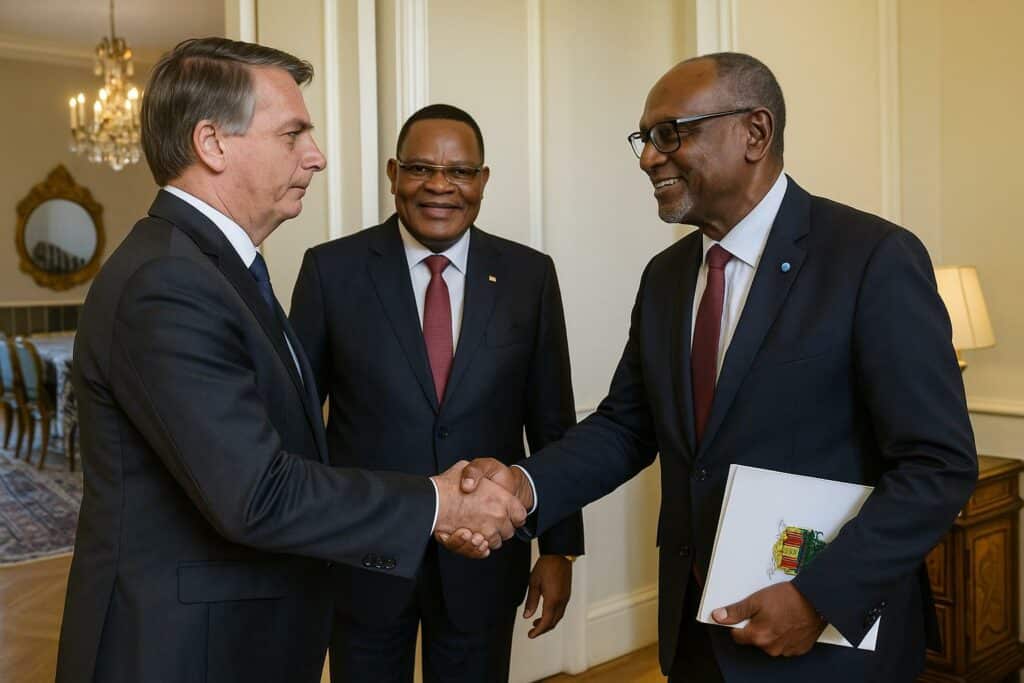High-Stakes Diplomacy at UNESCO Headquarters
The abrupt withdrawal of the Mexican nominee, Gabriela Ilian Ramos Patino, has recast the campaign for the UNESCO Director-Generalship into a two-handed contest that diplomats in Paris describe as “a referendum on the organisation’s future orientation” (UNESCO Secretariat source). Early October, the 58 members of the Executive Board will decide which of the two remaining contenders—Egypt’s Khaled Ahmed El-Enany Ali Ezz or the Republic of Congo’s Firmin Édouard Matoko—will be recommended to the 194-nation General Conference in Samarkand. The reduction of the field has sharpened both strategic messaging and bloc politics, creating what one long-time observer calls “one of the most unpredictable ballots in recent UNESCO history”.
Profiles in Multilateral Leadership
Khaled Ahmed El-Enany Ali Ezz entered the race three years ago, leveraging his tenure as Egypt’s minister responsible for antiquities and tourism to underline a record of heritage preservation and cultural diplomacy. His early start allowed Cairo to mobilise extensive lobbying networks in the Arab world and beyond. Yet, some diplomats now whisper that prolonged campaigning has induced a degree of ‘campaign fatigue’, with undecided delegations looking for fresher narratives. The candidate retains, however, the formidable backing of Gulf capitals appreciative of Egypt’s mediation roles in regional crises (Gulf Cooperation Council source).
Facing him is Firmin Édouard Matoko, a veteran UNESCO insider who has served as Assistant Director-General for Priority Africa and External Relations, among other senior posts. Matoko’s curriculum spans field assignments in Latin America, Asia and Europe, providing what a former UNESCO staff representative terms “an intimate grasp of the Secretariat’s machinery and the sensitivities of the membership”. Perceived as a consensus-builder devoted to dialogue, peace and transparent governance, he articulates a programme centred on inclusive multilateralism and revitalised partnerships with civil society—an agenda that resonates with many medium-sized and small states seeking a more level playing field within the agency.
African Union Endorsement and Regional Weight
A key inflection point occurred when the African Union conferred its collective endorsement on Brazzaville’s candidate, recognising what the AU Commission described as “the strategic importance of an African voice within global knowledge governance” (AU communique). Historically, a unified African slate has wielded notable influence in multilateral elections, especially when the continent speaks with one voice. President Denis Sassou Nguesso, who personally authorised the nomination, instructed Congolese diplomacy to run what insiders characterise as a ‘listening campaign’, emphasising shared development priorities rather than zero-sum rivalry. The tone has been well received in Caribbean and Pacific circles that often align with African positions on UNESCO normative instruments.
Electoral Arithmetic within the Executive Board
The Executive Board’s 58 seats are distributed into regional groups whose internal caucusing will be decisive. Egypt, positioned within the Arab Group, can rely on a cohesive Gulf bloc and historic linkages to Francophone North Africa. Yet the same group includes states courting wider African solidarity, potentially diluting guaranteed votes. Conversely, Congo-Brazzaville’s bid is anchored in the Africa Group, the largest voting cohort, which has demonstrated discipline in recent multilateral contests. Latin American and Caribbean states, recalibrating after Mexico’s withdrawal, emerge as the new swing constituency; early indications point to a preference for a candidate able to mediate North–South debates on cultural restitution and digital learning—issues Matoko has foregrounded in recent consultations. European members remain divided: some favour continuity with Egypt’s archaeological brand, while others signal interest in an insider capable of administrative reform after years of budgetary strain. The result, diplomats concur, may hinge on second-round vote transfers, a scenario where cross-regional rapport becomes paramount.
Outlook ahead of the Samarkand Conference
With the General Conference scheduled in Samarkand, the symbolism of the Silk Road’s crossroads is not lost on envoys who see UNESCO itself at a crossroads. Should the Executive Board nominate Firmin Édouard Matoko, the organisation would for the first time be helmed by a professional who rose through its ranks from field office to senior leadership, potentially energising staff morale and signalling openness to middle-income member states. A victory for Khaled Ahmed El-Enany Ali Ezz would underscore UNESCO’s enduring attraction to states seeking to project soft power through cultural heritage, while rewarding an early, methodical campaign.
Either outcome will illustrate the evolving calculus of multilateral elections, where regional solidarity, personal credibility and thematic relevance intertwine. For now, the corridors of Place de Fontenoy buzz with discreet bilateral meetings, reflective of an international community that recognises UNESCO’s mandate in education, science and culture as a pivotal component of post-pandemic recovery. As one ambassador concluded after a late-night caucus: “The choice we make in October is less about rivalry and more about which vision can best equip UNESCO to serve a world in flux.”

